There’s more to being a scientist than just doing science
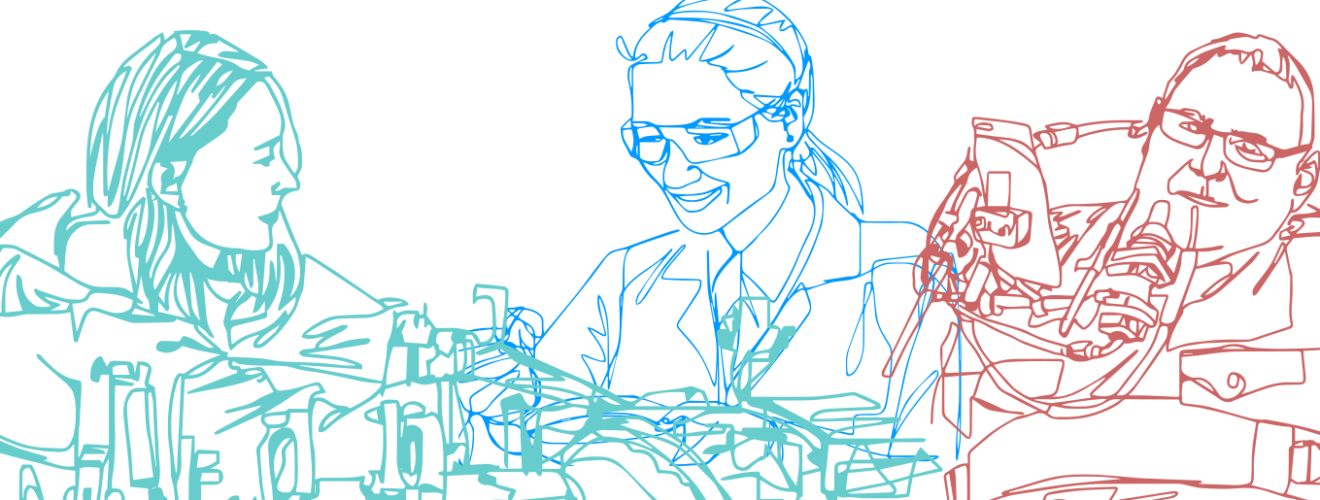
It can be too easy for privileged scientists who are innocently consumed with their research metrics, to detach themselves from their role in contributing to, and upholding, an unequal, unwelcoming culture. Meet Alan, a 42-year-old, neurotypical, white, heterosexual, cis-gendered able-bodied and -minded, native man, who tirelessly pours himself into his research. He barely looks up to notice lunchtime, nevermind the lack of diversity in his department. Alan goes along with the status quo, he’s never made things worse, but he’s also never endeavoured to make things better. Alan’s never felt science was unequal in any way; after all, he’s got on just fine. His supportive family network taught him “if you’re serious about science, all you really need to succeed is to work hard”. His colleagues, Bob and Steve, not only look and sound very similar but share his views on this – what’s all the fuss about? However, it isn’t enough to just do science anymore, even for Alan. It’s everyone’s responsibility to do equality and diversity work, most importantly because it’s right, but also – as much research has shown1 – because it’s good for business.
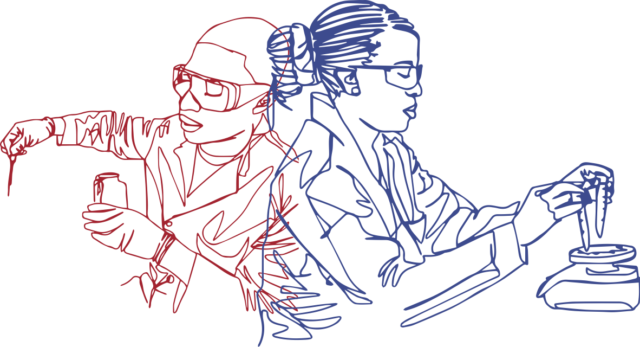
Innovation needs diversity to thrive. Homogenous groups may seem to run smoother, with teams of like-minded, agreeable individuals that share cultural and social norms working like clockwork. But that’s not what research needs. Research and innovation need a range of perspectives to challenge conventional methods of thinking in a team, to avoid stagnation and complacency, to push boundaries, and to develop ideas to ensure that the end result (or product) is optimised, inclusive, and accessible to everyone2. As the output of university-based research trickles, and sometimes rushes, into the forefront, influencing new technologies from cancer treatment to artificial intelligence, who is included and represented in this research matters. What’s more, who is left out from shaping our future will evidently show in the course of time. Whether done mindlessly or mindfully, the time is up on ignoring those culpable in maintaining the under-representation of groups of people, which has serious, and dangerous, consequences, usually to the detriment of those individual’s quality of safety, healthcare and access to technology3.
If it pays to have a diverse, equal and inclusive research team, then why are there still pockets of resistance?
Perpetrators aside, pockets of resistance4 come in many shapes and forms. The Objector, The Bystander, The Oblivious, The Uninterested, The Unaffected. But, what if instead we called these pockets, The Seemingly Too Busy. Too busy to look up, learn, listen, read, imagine themselves in another’s shoes, call out, and stand against inequalities, because their privilege protects them from having to get involved, but also because their demanding workloads have caused their sense of humanity to take a back seat and turn a blind eye. This inherently leaves a lot of activism, volunteer work and raising awareness to be driven by those within marginalised groups who are frustrated at the system5. They may have had direct experience of, or have witnessed, inequality and mistreatment. However, individuals who are part of under-represented groups have the same (or, more often than not, greater) work pressures, mental health strain6 and commitments. On top of this, they often have to do extra work that The Seemingly Too Busy don’t want to do, to bring about change and make space for themselves that will also benefit the advancement of science. This culture makes discriminatory incidents even more isolating, as the majority of people seem to only change matters that they can empathise with through shared experience. It shouldn’t be the responsibility of a minority group, to not only endure mistreatment, but then also to call it out, report it, explain the nuances of it, raise awareness, and even go on to suggest solutions (or perhaps build their own support group to address a shortfall in the system).
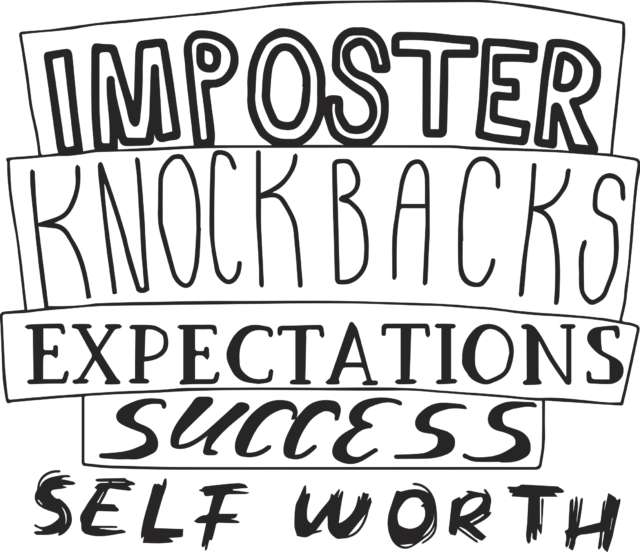
If academic staff and researchers weren’t so overworked, would equality and diversity efforts improve?
Although it’s not an excuse for individuals resting on their privilege, perhaps universities have a responsibility to reflect on how much headspace they are taking up from their researchers. With the pressures of league tables and REF (Research Excellence Framework)7, grant applications, experiment proposals, 24/7 email alerts, conferences, short-term contracts, and teaching workloads, it seems many academics can’t even prioritise their own mental health8, nevermind eradicate inequalities they believe don’t affect them. Is this where the heart of our problems lie – ignorance paired with a long list of priorities, where care for ourselves and others come last?
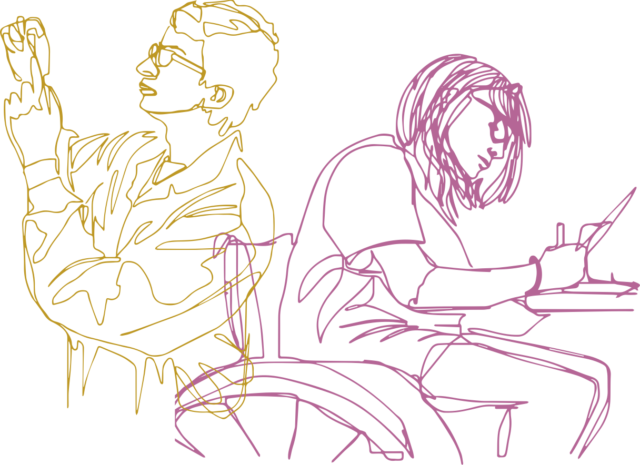
The academic culture of working harder, and therefore longer, is an equality, diversity and inclusion issue in itself. We are excluding those who cannot compete at this level due to physical or mental health, caring responsibilities, or those who simply don’t want to make academia their whole life. It’s tough to combat because those who are willing and able to give more are praised for doing so. Missing lunch breaks, working late, missing sleep, abandoning caring responsibilities, working through sickness, missing family events, not taking annual leave, working during annual leave… What precedent does this set? That personal sacrifice equals success and ambition. Or, in the worst cases, it equals nothing but the unsaid expectation; a hierarchical rite of passage for a one-size-fits-all academic lifestyle.
As the examples of personal sacrifice are validated, normalised (even admired), and passed down the pyramid of power, those who resist it, or suffer at the hands of the pressure, are seen as “not cut out for academia”. Since self-worth is so often intertwined with success, for students and staff who already have poor mental health or illness, this climate makes the climb more arduous. Even those who start out with the healthiest of minds can find themselves slipping too. Mental fatigue, burnout and overload don’t discriminate. Human limits will occur much quicker than the limitations to your remote working or research opportunities do. There are no martyrs here, only individuals complicit in perpetuating an exploitative, overworking game that not only damages players but sadly, can kill them. It’s a race to the bottom. Let’s not forget Dr Malcolm Anderson, Cardiff University’s overworked lecturer who heartbreakingly lost his life by suicide, despite complaining of his crippling workload9. Let us say his name and know his story. Awareness of the serious risks here and a supportive, watchful eye on those stuck in this culture are, in my mind, critical elements of the care, health and safety that students and staff deserve in universities.

If universities would be nothing without the people – why do they not care more about the impact of damaging culture?
If everyone felt pushed out due to extreme work pressures, discrimination, harassment and bullying, there would be nothing left. When is it enough for universities to drastically turn this culture around? What is the tipping point for a reaction to the growing statistics? 56% of UK university students report receiving unwelcome sexual behaviour10; should we wait until it’s 70%? What about the 996 formal complaints of racism in UK universities over 5 years11? Or, the 11 student suicides from one university in a 2 year period?12. Or, when an academic dies by suicide after explicitly warning their university of the excessive workload pressure, is that enough yet? It should be, but apparently not. We shouldn’t wait until 10 academics do this before we really listen to the problems echoed everywhere from university support groups and GP practices to headline news. Excluding the many uncounted experiences of those who haven’t reported incidents, or who have left with their untold stories, there are already more than enough statistics pointing to the cracks in the system, we just need you to care enough now.
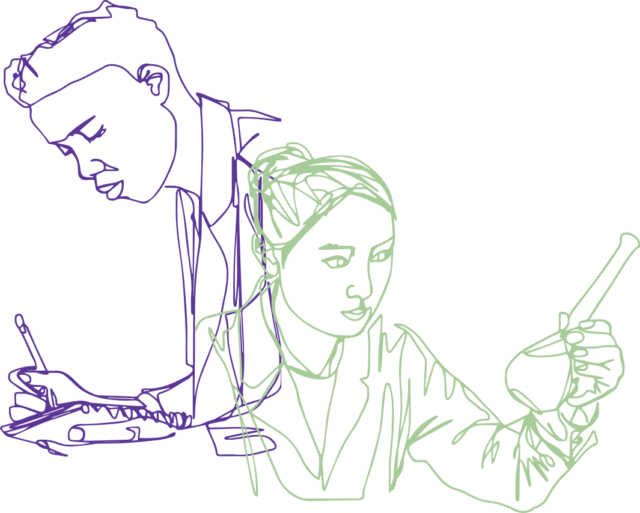
Ultimately, you can’t change something if you don’t recognise it’s a problem. This is why clear and trustworthy anonymous reporting structures, and continual analysis of that data, are vital if you genuinely care about students and staff. Nevermind your annual Wellbeing Week and your International LGBT+ (or Women) in STEM day social media posts, please keep your publicised token efforts to yourselves. For what you do offline matters most, and if you are choosing not to measure and track these statistics, you are choosing to bury your head in the sand. As bystanders ignoring this culture, we are condoning that the research done by those enforcing and perpetuating damaging work culture is worth more than the potential contributions of those who were pushed out or “not cut out for academia”. I refuse to submit to this “norm” that unhealthy behaviours, whether directed at ourselves or to others, are an acceptable expense, and collateral damage, for delivering good science.
Our hope – we might only need 3.5%13 of a community to be proactive to make a change. Start with you. There are plenty of good, honest scientists who do exceptional research in under 38 hours per week (including part-time researchers) without detriment to themselves, their students, colleagues and collaborators. They can even be uplifting to others while promoting a healthy work-life balance that benefits themselves, their productivity and research14. If they can do this, why can’t everyone? It‘s not a superpower, it’s just remaining human in an overworking, martyr culture that encourages, rewards and expects output at any cost. Let’s learn from them. Hold ourselves, our institutions and others (like Alan) accountable, for the benefit of our mental health, our colleagues, and the future of good honest inclusive science. If you care about science, you should care about this too. There’s more to being a scientist than just doing science.
This article was specialist edited by Katrina Wesencraft and copy-edited by Kirstin Leslie.
References
- https://www.nature.com/articles/d41586-018-07415-9, https://www.nature.com/articles/s41467-018-07634-8.pdf, https://www.theguardian.com/sustainable-business/2017/jun/16/business-diversity-workplace-pledge
- https://hbr.org/2016/11/why-diverse-teams-are-smarter
- https://physicsworld.com/a/why-we-need-to-keep-talking-about-equality-in-physics/ , https://www.theguardian.com/technology/2019/apr/16/artificial-intelligence-lack-diversity-new-york-university-study
- http://occamstypewriter.org/athenedonald/2019/06/22/unconscious-bias-training-isnt-a-magic-wand/
- https://www.theguardian.com/education/2019/jul/02/black-academics-bear-brunt-of-university-work-on-race-equality
- https://www.insidehighered.com/news/2017/04/06/study-shows-impostor-syndromes-effect-minority-students-mental-health , https://www.mentalhealth.org.uk/a-to-z/b/black-asian-and-minority-ethnic-bame-communities, https://www.tandfonline.com/doi/full/10.1080/09687599.2018.1455627
- https://www.ref.ac.uk/about/what-is-the-ref/
- https://www.bbc.co.uk/news/education-48353331, https://www.theguardian.com/education/2018/jun/12/university-mental-health-league-table-obsession , https://www.theguardian.com/higher-education-network/blog/2014/mar/01/mental-health-issue-phd-research-university , https://www.theguardian.com/education/2019/may/23/higher-education-staff-suffer-epidemic-of-poor-mental-health?CMP=twt_a-education_b-gdnedu
- https://www.timeshighereducation.com/news/cardiff-plans-review-after-suicide-overworked-lecturer
- https://www.theguardian.com/education/2019/feb/26/more-than-half-of-uk-students-say-they-have-faced-unwanted-sexual-behaviour
- https://www.theguardian.com/education/2019/jul/05/uk-universities-condemned-for-failure-to-tackle-racism
- https://www.huffingtonpost.co.uk/entry/bristol-university-trials-new-student-suicide-prevention-scheme_uk_5d482174e4b0acb57fcfea15
- https://rationalinsurgent.com/2013/11/04/my-talk-at-tedxboulder-civil-resistance-and-the-3-5-rule/
- https://www.nature.com/naturejobs/science/articles/10.1038/nj7654-375a










